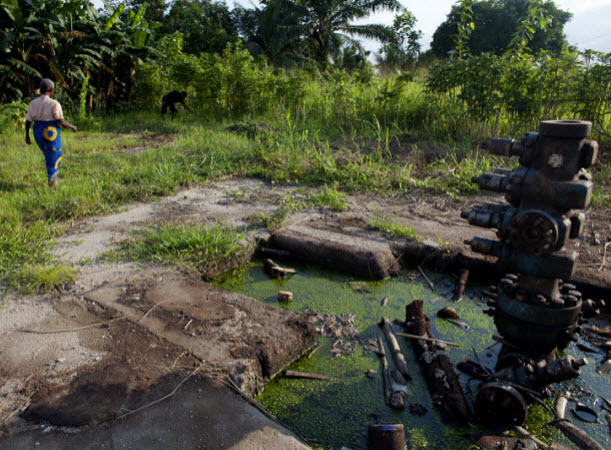There are no products in your shopping cart.
| 0 Items | £0.00 |

 INVEST in Nigeria's oil and gas sector has fallen to a three year low according to a recent survey published by leading economists who pointed out that the country is failing to woo the needed investment that will result in economic growth.
INVEST in Nigeria's oil and gas sector has fallen to a three year low according to a recent survey published by leading economists who pointed out that the country is failing to woo the needed investment that will result in economic growth.
According to the research report put together by Professor Adeola Adenikinju of the Department of Economics and Centre for Petroleum, Energy Economics and Law University of Ibadan and his counterpart at the Department of Economics, University of Benin, Professor Aderoju Oyefusi, investment is falling. They said despite being one of the largest producers of crude oil, Nigeria's citizenry remain impoverished and suffer a lot of privations more than they are willing to admit.
Their report tagged Oil and Gas Sector Management and Quality of Life in Nigeria, which is in two separate volumes of 144-200 pages respectively, gives a global view of the nation’s revenue streams vis-a-vis the challenges facing the sector in both the up and down stream segments of the oil market. It states that Nigeria is estimated to have the second largest amount of proved crude oil reserves in Africa, the eighth largest among Opec countries and the 10th largest in the world.
Nigeria also has the eighth largest gas reserves in the world, is the largest oil producer in Africa and is among the world’s top five exporters of liquefied natural gas. With a population of about 203m, it has one of the largest economies in Africa but the economy is still hugely dependent on crude oil, which accounts for over 80% of foreign exchange earnings and up to 66% of government revenue, despite contributing less than 10% to gross domestic product (GDP).
According to the report, despite a boom in all prices between 2010 and 2014 and significant increases in production following a peace deal in the Niger Delta, the proportion of people living below the national poverty line in the country rose from 34.1% between 2000 and 2006 to 46.39% by 2017. It adds that the latest collapse in crude oil prices has more than the previous episodes, exposed the vulnerability of the Nigerian economy and people to shocks in the international environment that affect the oil and gas industry.
Between January 2016 and January 2018, unemployment doubled across Nigeria while inflation rose by over 50%. Within a space of about five years, between 2013 and 2018, Nigeria moved from being one of the fastest growing economies in the world to the world’s poverty capital, with almost half of the population living in poverty and another 60% of its citizens standing in danger of falling into poverty every minute.
The report points out that while some oil-exporting countries such as Norway and Gabon, were able to minimise the impacts of fall in oil price on their domestic economies, Nigeria and its citizens paid a heavy price. Furthermore, the report examines the linkages between the management of the oil and gas sector and quality of life in Nigeria.
Their report identifies, at least six policy failures in Nigeria’s oil and gas industry that have made the economy vulnerable and made it difficult for the sector to positively impact on the living standards of Nigerians. These include the absence of an effective saving/stabilisation fund and the absence of a wholesome and effective legislation for the oil and gas industry that adequately address the challenges in the sector.